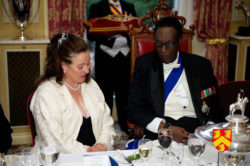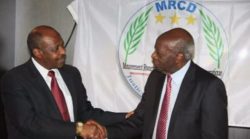THE UDPS-RPF COLLUSION: CASE OF AN ENDLESS SAGA?
- INTRODUCTION
“There is no revolution without intellectuals, and there is no struggle without thinking people, with thinking capacity “ (Fikile Mbalula Ancy, former president of the South African Youth League, 23 April 2016).
“L’UDPS porte une lourde responsabilité dans le processus d’occupation et de balkanisation de la RDC depuis 1996, à cause de sa complicité avérée avec les ennemis du peuple congolais » (Candide Okeke, novembre 2016).
Félix-Antoine Tshilombo Tshisekedi was elected President of the UDPS on March 31, 2018 to succeed his late father, Tshisekedi wa Mulumba (LuabaWa Ba Mabungi, 2018) who died in Brussels on February 1, 2017 and who, until this date, was not buried yet. On the one hand, many Congolese, especially within his Luba community and the ruling party (Mathieu Ilunga Kankonde; André Kabanda Kana;Patrick Nkanga), were pleased with his election, praising “the transparency”[2] by which the election was conducted and most importantly, the fact that the party remains in the hands of the Family after a long period of in-fighting[3]. These tribal commentators claim that his election is the resurrection of the UDPS and expect that the new leader will bring a new life to the party. Really?This narrow view is challenged in the strongest terms and in the most convincing way by Journalist Kerwin Mayizo (2018).
Freddy Mulongo’s position (2018) is practically identical to the one of Kerwin Mayizo calling it a «Childish and exacerbated triumphalism which followed the election of Félix Tshilombo Tshisekedi as successor to his late father, Etienne Tshisekedi wa Mulumba, at the head of the UDPS, implying the false idea of a family, an ethnic-tribal party that didn’t let the Congolese indifferent! Following the attitude of fanatics and other extremists who are ready to silence, by any means, those who disagree with them,“Réveil FM” pushed to make an objective analysis of the UDPS Congress after the closing of its work. Every Congolese would wish the UDPS to succeed and to rise up from its disorder and wrongdoings. This is so more important than many self-serving politicians who work for the regime of Joseph Kabila Kanambe Kazembere Mtwale and who have participated in the destruction of the country that comes from the UDPS: Modeste Mutinga, Lambert Mende, Samy Badibanga, Bruno Tshibala, Shadary, Jean-Marie… It is a good news to hear that the UDPS organized successfully its Extraordinary Congress after 36 years of its existence. How can we avoid this in the future? The answer lies in the way it handles or corrects its five mistakes… One such mistake is the following: victory is a collective affair, and yet, Félix Tshilombo Tshisekedi gave the impression of being ‘the Man’ who will lead the UDPS to victory by gaining all political positions at stake: President of the Republic, Prime Minister, MPs, Senators, Governors. For a political party which has no seating leader within the Republic institutions, which, for 36 years of its existence never won any election, such an ambition is a daydream (“c’est rêver debout”). Why didn’t Félix Tshisekedi take the precaution to invite Jean-Marc Kabund, the Secretary General of the UDPS as well as other members of the Congress Preparatory Committee on the podium when he gave his acceptance speech?” It is a sign or a premonition that he runs the risk of following in his father’s footsteps, the individualization of the party’s management; a bad news, by the way!
On the other hand, many other Congolese are pessimistic because of the personality of Félix Tshilombo seen as a “Brutus”, (“a monster” who, according to Jacques Matanda, was fabricated by the Belgian criminal neocolonialists who killed Patrice-Emery Lumumba, 2017),[4] that some see as a man connected to “Joseph Kabila” and to the Tutsi networks in the DRC for many reasons (Candide Okeke, 2014), and who has been unable to bury his father for almost one year and a half. Instead, he is enjoying world trips to sell his image as a future presidential candidate. Furthermore, people wonder who is paying for the cost of filing his father’s body in a Brussels morgue for such a long period of time: his family, his party, or Joseph Kabila (who, I heard, gave 30,000 USD to Félix Tshilombo for the repatriation of his father’s body, an amount which was never used for this purpose) or is it somebody else?). This is also another side of the Tshisekedi mystery.
In such conditions, can he become suddenly a responsible, patriotic leader and put an end to the longstanding collusion between his father’s UDPS and the FPR? These are some issues that I intend to explore and thoroughly discuss in this short essay in order to highlight some clouds which continue to hang high over the political landscape of the DRC. In this framework, I further explain some elements of my contribution to the collective book, Le Degré zéro de la dynamique politique en RDC depuis 1960 , co-edited by Justin Mbaya Kankwenda and François Mukoka Nsenda, Kinshasa Icredes, 2018): chapitre 14 : « La Géopolitique internationale et régionale dans la dynamique politique congolaise depuis 1960.”
- THE RISE OF THE UDPS AND THE RPF IN THE CONTEXT OF THE GEOPOLITICAL CHANGES OF THE 1980s
Foreseeing the end of the cold war in the 1980s with the advent of President Gorbatchev’s 1985 Perestroïka (Encyclopaedia Universalis, 2018), Washington turned its back to the dictatorship it sponsored by supporting Mobutu’s regime or by tolerating Habyarimana’s regime before. It means that both the UDPS and the RPF had a boost from Washington which intended to use them in its fighting against the regimes of Mobutu in the then Zaire and Habyarimana in Rwanda, two leaders who enjoyed its friendship and whose popularity among the masses was not as bad as western medias and other African medias in service were reporting.
Mobutu, imposed by the CIA in power in September 1960, had been instrumental in waging the war in Angola since its independence in 1975. Indeed, with the US backing, Jonas Savimbi and the UNITA had fought since 1975 the MPLA government (led by Neto, then by Dos Santos). The Americans found in Mobutu a reliable man, or to repeat the words of President Ronald Reagan, « a voice of good sense and good will » and Zaire (the military base of Kamina in the Shaba/Katanga province) a transit country (James Broom, 1987). In return, Mobutu received political and economic support as well as weapons and money whose magnitude in gains will take time to know because in such kind of operation (« The CIA’s covert supply of weapons »), everything is always opaque.
Raymond W. Copson (2000: 73-75)) well explains the reasons of the US policy shift in Central Africa during this decade: “ During the Cold War, Central Africa, particularly Zaire, ranked higher on the US agenda than afterward…President Mobutu Sese Seko (in power for the second time beginning 1965)…had made, in 1967, Zaire a one-party state. In the cold war context, his regime won the ready support of the United States, Belgium and France.- the principal actors in Zaire… With declining Cold War tensions, and moreover, progress toward peace in Angola, the United States had less need to cooperate with the Zairian leader than in the past… Pressure on Zaire for reforms increased”.
The role of the UDPS must be measured in the light of this external pressure. In Rwanda, however, the stability of the currency (“Franc rwandais”), the effectiveness of development policies and the good governance which earned President Habyarimana’s praise from the international community didn’t fit into this new US agenda, especially when one knows that he didn’t want, for most of the time, to comply with the World Bank and FMI diktats. His undependable attitude, the ties that the Tutsi had built for years with the Jews (note that they called themselves the Jews of Africa in 1982 and that, since then, Tel-Aviv and Washington linked Jewish history with the one of the Tutsi and shaped their policies in the region on this line (Pierre Péan,: 2010), and the support that they had from the US administration under both Presidents G.H. Bush (father) and Bill Clinton (J.E. Murphy, 2015).
All these factors worked against President Habyarimana as the US strategy was to cause a general chaos in the whole region and establish a new political and economic order from this chaos. The role of the RPF, which is Museveni’s creation or child (he used to call RPF’s combatants, former soldiers of his army, the NRA-, his “boys”), is also to be understood in this framework; it was in this framework that the discourse on genocide was produced, widely disseminated and used by the Tutsi as a powerful weapon to win international support and to justify their struggle for power re-conquest of Rwanda and the later invasion and occupation of Zaire/DRC.
No wonder that in both cases (Rwanda- “the New Israel” or “the US Protectorate” in Central Africa”- and Zaire), the United States and its allies or the Anglo-Saxons dismantled the existing national institutions in order to hand over power to the “Tutsi Without Borders” (“Batutsi banso”, words of maître Djino Will of TV Réveil Patriotique in the USA); what was not the case in South Africa and in Burundi where the same powerful international players imposed the “CVR” scheme as a way to keep power in the hands of the White minority and the Tutsi minority respectively, keeping a blind eye on the crimes they committed for years, 1948-1990 for the White regime in South Africa (the National Party), 1965-2000 for the Tutsi regime in Burundi (UPRONA).
Thus, their goal in the post-cold war era was not to bring democracy to the Africa Great Lakes Region, but to install new, ethnic-based dictatorships. The organization of impunity (words used by Pierre Péan) which continues up to now in Burundi, Uganda, Rwanda and Zaire/DRC serves one purpose: to protect the Tutsi criminals and their allies in crimes, both visible and invisible actors from within and outside.
Therefore, the context of the rise of the UDPS and of the RPF is truth-telling. They arose in a context of big changes in the whole of the Africa Great Lakes Region where Washington decided to establish a new political order using Yoweri Kaguta Museveni’s hand to reduce the influence of Belgium (a former colonial power) and of the French Language :
« Il (Museveni) n’a cessé de faire la guerre depuis plus de trente ans, d’abord pour prendre le pouvoir en Ouganda, ensuite pour étendre son influence au-delà des frontières ougandaises qu’il trouve manifestement trop étroites. Après Kampala, ses yeux se sont portés sur Juba,
capitale du Sud-Soudan, puis sur Kigali, ensuite sur Kinshasa… Pour comprendre l’origine des drames qui ont ensanglanté la région des Grands Lacs, il importe justement de chercher à cerner les ressorts de Museveni, de décrire sa trajectoire militaire avant de le suivre quand il prend le maquis, au début des années 1980, et enfin d’observer de près ceux qui l’ont rejoint. Car c’est à Kampala que se sont produits quelques battements d‘ailes qui allaient en effet déclencher de terribles ‘effets papillon’ dans toute la région des Grands » (Pierre Péan, 2010 : 219, 221). Paul Kagame, the current president of Rwanda, was a soldier in Museveni’s NRA/Ugandan army and served as the head of the Ugandan security services between 1986 and 1994 (Remigius Kintu, 1998). Joseph Kabila was a soldier in the RPF and one of Paul Kagame’s bodyguards; today, he is the head of the DRC.
It was then through Museveni and his US- backed regional wars (Remigius Kintu, 1997) that Washington saw the best way “to secure access for the US political, economical, military and cultural interests” in the emerging new era, the transition to the post-cold war. It is in the process of the implementation of this double american and hima-tutsi ethnic project, that the West (United States, Britain, Israel, Belgium, Canada to name a few) put the « Tutsi without Borders » at the summit of the DRC, first under the ADFL brand name in 1996 and 1997, second with the imposition of Joseph Kabila that some well knowledgeable people call « Hyppolite Kanambe, » ( meaning a forger)[5], as head of the Congolese State in January 2001. It is not surprising that, to use the words of Faustin Twagiramungu, alias Rukokoma, a key ally of the RPF in the anti- President Juvénal Habyarimana struggle, the first prime minister of the RPF government in Rwanda (1994-1995) now an exile in Belgium, well informed about the latter’s tactics, dirty tricks and governing methods, it is « Joseph Kabila [who] governs the DRC on behalf of Paul Kagame with the help of obscure forces which support him»[6].
Source:”RD Congo-Ouganda-Rwanda: au sommet de l’hypocrisie ? » in Le Potentiel/Agora Vox, 7 septembre 2013.
- THE UDPS
This political party was created in Kinshasa in 1982, but its creation was preceded by the 1979 Letter of 13 parliamentarians. Jean-Claude Willame is one of the few people who studied the history of the UDPS.. In his 1987 study, he sheds some light on this party’s first years of political struggle. Particularly, he describes the context in which the UDPS was created in Zaire and the actions it undertook to force the democratization of the political system. The results of its actions were mixed or even very limited for two reasons: the repression of Mobutu’s regime and the trap of a dialogue which led to what he calls, “Ralliement” to the MPR in 1987 (92-112). From a perceived “radical political party” early on, the UDPS was brought into the MPR ranks to the frustration of its members:
“L’annonce du ‘ralliement’ de l’UDPS a produit un profond désarroi chez les partisans du mouvement dont plusieurs centaines étaient toujours en prison.au moment de la libération des leaders. Ce désarroi était compréhensible où il survenait peu après le retour de ‘grands notables’ de l’exil extérieur (Nguz-a Karl-I-Bond, Mungul Diaka, etc.) qui s’étaient opposés à titre individuel au système politique zaïrois et avaient été récupérés sans pouvoir poser des conditions politiques à leur retour » (Jean-Claude Willame, 1987 :110).
It means that the party, pretending to be the Mother of All Parties, the Standard Bearer of the Opposition (a slogan of its fanatics or naive Congolese that runs as follows: the UDPS is a National Heritage). However, it has made huge mistakes since the first years of its existence. These mistakes continue to be its hallmark: in the end, the thirst for power and money as well as the betrayal of its base have taken over all other goals. There is some evidence to draw from its history and failed struggle as described below. The book by Tshitenge Tshimbawu, Les Péchés politiques d’Etienne Tshisekedi wa Mulumba, 1982-2011 (2013), an excellent account of the UDPS history under the failed leadership of Etienne Tshisekedi, is a reference : « Etienne Tshisekedi never learned lessons from his repeated failures in order to change his strategy, at least to take advantage of the beginning of Mobutu’s downfall … In the whole story of the UDPS under the leadership of its national president, many negative decisions which were not beneficial to the party were made .. Under his leadership, the UDPS was a total failure» (François Kasenda, member of the UDPS/Canada quoted by Tshitenge Tshimbawu, 2013 : 152).
1.2.THE FPR
This politico-military party was created in 1987 in Washington, DC and in Kampala, Uganda; but there was a precursor, the RANU/Rwanda Alliance for National Unity (Vincent Gasana, 2017):“The Rwanda Alliance for National Unity, or RANU headquartered in Nairobi, Kenya, was created in 1979 and was presented as a cultural organization to unite all Rwandans. This was largely true, but it was not the whole truth. RANU did indeed work to bring Rwandans together through their shared culture. But, it was also a political organization, which kept a military option wide open. This option would have severely compromised the safety of every Rwandan, had the authorities in the host countries caught wind of it. Political discussions were conducted clandestinely, under the cover of cultural celebrations, and what could have been better than culture to mobilize people around their identity ?”.
In those early years of the UDPS, some founders of the RPF and former members of the RANU chose the option of violent revolution from the start. This is the reason why they fought alongside Museveni (1981-1986), even becoming the spearhead of his January 1986 military victory in Uganda: “In 1979, the Rwandese Alliance for National Unity (RANU) emerges in Uganda to promote the option of Rwandan refugees’ return to Rwanda. In 1980, several members of RANU join Museveni’s National Resistance Army (NRA) in the Ugandan bush war against the then President of Uganda Milton Obote. In 1982[7], the Tutsi refugees from Uganda forced or were forced by Milton Obote’s government (explusion) to return to Rwanda; surprised by the event, the then Rwandan government blocked them on the border[8]. In 1987 RANU, renamed Rwandan Patriotic Front (RPF), adopts a more militarist stance in its dealings with Uganda and Rwanda”(Erin Jessee, 2017, section: chronology, XIII).
By
Bucyalimwe Mararo Stanislas[1]
FULL TEXT : THE UDPS
[1] The Author thanks Professor Antoine Sebagenzi wa Lulenga for carefully proofreading this Paper.
[2] They praise this election as proof of the international democracy (a joke because it was controversial and done for the first time in the 35 year existence of the UDPS) and consider it as a model of democracy that the country should follow.
[3]Some Luba intellectuals, especially members of the UDPS, judged the presidency of Etienne Tshisekedi at the head of the party as a total failure (Lettre ouverte des 13 Parlementaires du Grand Kasaï, 2006; Tshitenge Tshimbawu, 2013).
[4]Félix Tshilombo (2012) also stresses his ties with Belgium or some Belgian political circles when stating the following:
»Q. Sept mois après les élections présidentielle et législative au Congo, vous êtes toujours en Belgique. Quel est le motif de la prolongation de votre séjour?
A . Je ne suis pas toujours qu’en Belgique. La Belgique représente pour moi une sorte de «Quartier général.» C’est ici que vit ma famille. C’est également ici que j’ai fourbi mes armes en politique. En dehors du Congo, la Belgique constitue un peu «l’autre chez moi». J’ai été obligé de prolonger mon séjour à l’extérieur dans le but de mener des actions de «sensibilisation» auprès de nos «partenaires». Il s’agit de les éclairer sur l’imposture qui s’est produite au Congo. Je m’inscris dans la logique de notre Président. Logique qui vise à prendre possession de l’imperium ».
[5] « Congo Eye-Opening Shock : « Joseph Kabila not Congolese, nor a Kabila”, congocoalitionblog, October 3, 20. See also Mwamba Tshibangu (2005); Honoré Ngbanda, “Joseph Kabila est un Rwandais et il s’appelle en réalité Hyppolite Kanambe », Kongo Times, 27 december 2007.
[6]« Faustin Twagiramungu, ancien Premier ministre rwandais (du FPR) tance Kagame et Kabila. Bruxelles, le 07 juin 2017 » (https://www.youtube.com/watch?v=pU9q5Oq8osM.
[7]This forced return of 40/45,000 refugees or 80,000 according to the Rwandan government (Eugene Shimamungu, 2006: 62; Laurien Uwizeyimana, 1992: 24) coincided with the creation of the UDPS, meaning that pressures on the Mobutu and Habyarimana regimes were launched the same year.
[8]The management of this crisis opposed President Habyarimana and the then Minister of Social Affairs and Community Development, Félix Gatabazi, a notable from the South of the country (Laurent Uwizeyimana, 1992: 28) who later joined the RPF before being killed by their death squad in 1993.
Vous pourriez être intéressé(e)

Belgique – Rwanda : diplomatie à genoux, humiliation en série
Emmanuel Neretse - 23 novembre 2025Dans cet article, nous nous proposons d’analyser et de comprendre les raisons qui poussent la diplomatie du gouvernement belge actuel, surnommé « l’Arizona » dirigée par le…

Accords de Washington et de Doha : Paix historique ou capitulation annoncée ?
Emmanuel Neretse - 16 novembre 2025Entre retrait ambigu des forces rwandaises, intégration politique du M23/AFC et risque de balkanisation, la RDC joue son avenir dans un accord où la souveraineté nationale semble…
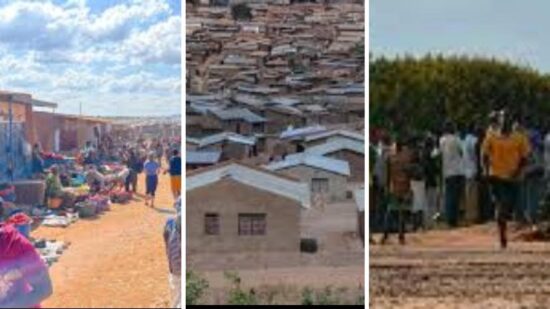
La dérogation aux droits fondamentaux des réfugiés au Malawi
Athanase Dushimirimana - 16 novembre 2025Documents juridiques internationaux consacrés aux droits des réfugiés La Seconde Guerre Mondiale a poussé d'innombrables personnes à quitter leurs pays pour s'établir à l'étranger. Dès lors,…
Les plus populaires de cette catégorie

Tanzanie : le coup raté contre Samia Suluhu Hassan et l’échec du projet d’« Empire Hima-Tutsi »
Emmanuel Neretse - 8 novembre 2025
Vient de paraître : Rwanda 1994. Les massacres de Ndera – Vérité d’un rescapé
Gaspard Musabyimana - 3 novembre 2025
Casques bleus ou bras armé de Kigali ? Les ambiguïtés du déploiement rwandais en Centrafrique
Emmanuel Neretse - 2 novembre 2025


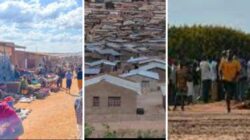









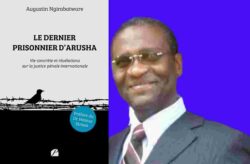


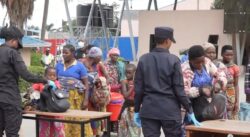



![Paul Kagame a fait main basse sur le commerce juteux de la friperie et sur la culture et la vente du cannabis [Série 8]](http://www.echosdafrique.com/wp-content/uploads/2021/07/cannabis-Kagme_Marijuana-250x161.jpg)
